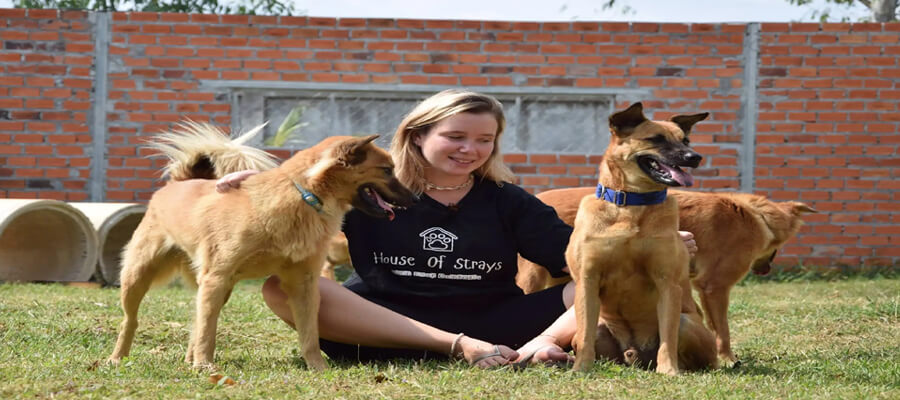
The Importance of Rescue and Rehabilitation for Abandoned Dogs
The Importance of Rescue and Rehabilitation for Abandoned Dogs: Giving Hope and a Second Chance
Introduction
The number of abandoned dogs in need of rescue and rehabilitation is heart-wrenching, but fortunately, the impact of rescue organizations, animal shelters, and rehabilitation programs is transformative. These programs save the lives of countless abandoned dogs, providing them with essential medical care, emotional healing, and the chance to find loving homes. The journey from rescue to rehabilitation involves dedicated time, resources, and love, and it showcases the resilience of dogs and the importance of giving them a second chance.
This article delves into the importance of rescue and rehabilitation efforts for abandoned dogs, highlighting the remarkable ways these programs benefit both dogs and society.
1. Understanding Why Dogs Are Abandoned
- Common Causes: Economic hardship, changes in family dynamics, behavioral challenges, and lack of awareness are among the main reasons dogs are abandoned.
- Effects of Abandonment: Dogs that are abandoned suffer from stress, anxiety, health issues, and loss of trust in humans. Rehabilitation becomes crucial to address these effects.
2. Immediate Rescue: The First Step to Safety
Essentials for Your Newly Adopted Pet
Welcoming a shelter pet into your life is a beautiful journey. Here are some handpicked items to help your new friend feel safe, loved, and right at home:
- Rescue Organizations: Shelters and animal rescue groups respond to abandoned or stray dogs, often rescuing them from dangerous situations.
- Safety and Security: Rescue provides immediate shelter and protection from threats like malnutrition, disease, and accidents.
3. Medical Intervention and Health Assessment
- Medical Examinations: Upon rescue, dogs undergo thorough health checks to assess physical conditions, vaccinate, and treat any infections or injuries.
- Ongoing Health Support: Many abandoned dogs suffer from long-term conditions. Rescue organizations provide medications, surgeries, and rehabilitation as needed.
4. Behavioral Rehabilitation for Abandoned Dogs
- Addressing Trauma: Abandoned dogs often display signs of fear, aggression, or anxiety due to past abuse or neglect. Behavioral therapy addresses these issues.
- Building Trust: Trust-building exercises with trained professionals help dogs regain confidence in humans, creating a foundation for future adoption.
5. Socialization and Emotional Healing
- Learning to Socialize: Through careful interaction with other dogs and humans, rescued dogs learn to socialize, which is vital for a balanced life.
- Reducing Anxiety: Gradual socialization reduces fear and anxiety, which are common in abandoned dogs and essential for a successful transition into a new home.
6. Training for Adoption Readiness
- Basic Commands and Etiquette: Rescue organizations provide basic training to teach dogs commands, reduce undesirable behaviors, and help them adapt to a home environment.
- Housebreaking and Routine: Teaching abandoned dogs routines and housetraining ensures a smoother integration into a potential adoptive family.
7. The Role of Foster Care in Rehabilitation
- Temporary Homes for Healing: Foster care provides a comforting home environment where dogs can heal, learn, and grow before finding permanent homes.
- One-on-One Attention: Fostering offers abandoned dogs individualized care, enhancing their rehabilitation and improving their chances of successful adoption.
8. Rehabilitation Centers for Long-Term Care
- Specialized Care for Severe Cases: Some dogs require long-term rehabilitation, especially those with severe physical or psychological trauma.
- Dedicated Support for Behavioral Challenges: Trained professionals work with challenging cases to overcome aggression, fear, and other behavioral issues.
9. Why Rescue and Rehabilitation Are Essential for Society
- Reducing Stray Population: By rescuing abandoned dogs, organizations help decrease the stray population, improving community health and safety.
- Promoting Compassion and Responsibility: Rescue and rehabilitation highlight the importance of humane treatment and responsible pet ownership.
10. Creating Happy Endings Through Adoption
- Second Chances for Abandoned Dogs: Once rehabilitated, abandoned dogs have a renewed opportunity for a joyful life with a forever family.
- Transformative Impact on Families: Adopting a rehabilitated dog not only changes the dog’s life but also brings joy, companionship, and purpose to adoptive families.
Conclusion
Rescue and rehabilitation efforts are a lifeline for abandoned dogs, addressing their physical and emotional needs and transforming them from vulnerable, neglected animals into loving, adoptable companions. Each rescue is a step toward a brighter future for dogs that deserve a second chance. These programs not only benefit the dogs but also foster compassion and responsible pet ownership within our communities. Through the combined dedication of shelters, volunteers, foster families, and adopters, rescue and rehabilitation continue to make a positive impact, one dog at a time.
Affiliate Products
We may earn a small commission when you shop through our links — it helps us keep sharing love and care for every dog out there, at no extra cost to you.
Up to 75% Discount

Dog Collar with Health Monitoring
BUY NOW »
Up to 55% Discount

Luxury Faux Furhuge Napping Bed
BUY NOW »

